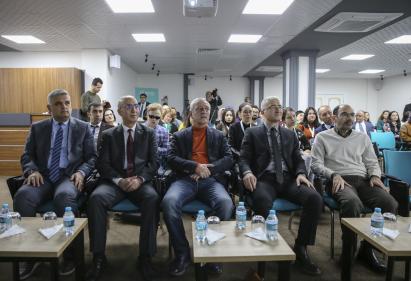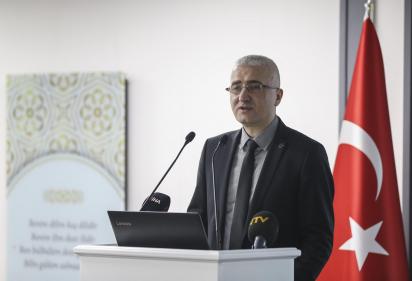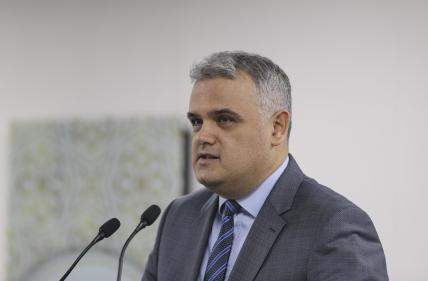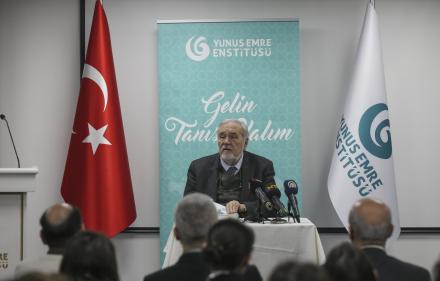Turkology Winter School Kicks Off
The Turkology Winter School, organized for the first time by Yunus Emre Institute, has kicked off with the opening ceremony organized at the Institute's office in Kızılay, Ankara.
For 10 days, 26 Turkologists from 16 countries will receive training at the Turkology Winter School in Turkey. The school will run until February 7 for doctoral students in the field of Turkology from many countries including Romania, Azerbaijan, Bosnia and Herzegovina, France, South Korea, Georgia, Poland, and Russia. The opening ceremony was attended by Turkish Language Society (TDK) President Prof. Dr. Gürer Gülsevin, TDK Deputy President Prof. Dr. Feyzi Ersoy, and many academics.
Yunus Emre Institute Turkish Teaching and Turkology Director Prof. Dr. Yavuz Kartallıoğlu delivered a keynote speech during the ceremony, indicating that the participants will take 6 hours of courses a day and take part in cultural trips. "Turkey's Turkology will be promoted at the event during which the participants can meet academics working on their doctoral subjects. On the other hand, the book entitled "Turkology," prepared by the Institute, will be used in the training, and new chapters may be added to the book on Turkish history and Turkish teaching depending on the feedback," he said.
"You will leave your mark on Turkology with your work"
TDK President Gülsevin pointed out the program bringing together doctoral students studying Turkology from various countries plays a crucial role. "Hopefully, you will leave your mark on Turkology with your work," she said.
Noting that Turkology first emerged in Europe before the rise of the Soviet school of Turkology following the establishment of the Soviet Union, Gülsevin indicated that Turkey has come up as a growing hub of Turkology in the world with the founding of the Republic.
She referred to the "Turkology" book prepared by the Institute as a "work which will become a canon for the standard Turkology in Turkey."
Pointing out that Turkology texts focus on history in certain countries while grammar or linguistics serves the basis of Turkology in others, Gülsevin stated that all of these disciplines are given special emphasis in Turkey.
Gülsevin drew attention to the definition of Turkology as a "science of Turkishness," adding that having been established in 1932 with the guidance of Mustafa Kemal Atatürk, the TDK has made great contributions to Turkology studies.
"It is the right and duty of Yunus Emre Institute to lead the field of Turkology"
Historian and writer Prof. Dr. İlber Ortaylı commented on the Turkology Winter School. "It is the duty of Yunus Emre Institute to establish contact with the Turkology world. It is its right and duty to lead the field," he said.
Ortaylı further noted that such programs that target Turkologists should take longer as it is impossible to become a Turkologist without learning about Anatolia in depth. "This program should seriously be maintained. Seminars which would last for 1 month, 6 months and even 1 year should be organized," he said.
Ortaylı gave a lecture on "Turkish history" as part of the program.
For those who participate in programs like the Turkology Winter School, organized by the Institute, he made the suggestion that they should stay longer in Anatolia. "I think it is beneficial especially for those come from Azerbaijan to stay in Anatolia. I hope they should stay in Urfa, Erzurum, Gümüşhane, and Bayburt," he said.
Ortaylı also indicated that one of the prominent missions of the TDK was to save Turkish from the influence of Arabic and Persian, and Turkish language is the language of people from various religions.
Having given training to 5,000 Turkologists in Turkey with its "Turkology Summer School" programs, Yunus Emre Institute organizes a Turkology Winter School program for the first time.














